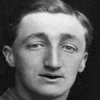A. P. Herbert

A. P. Herbert
Sir Alan Patrick Herbert CH, also known as A. P. Herbert or simply A. P. H., was an English humorist, novelist, playwright and law reform activist who served as an independent Member of Parliamentfor Oxford University from the 1935 general election to the 1950 general election, when university constituencies were abolished...
NationalityEnglish
ProfessionStatesman
Date of Birth24 September 1890
funny life anniversary
The concept of two people living together for 25 years without a serious dispute suggests a lack of spirit only to be admired in sheep.
thinking looks sausage
A high-brow is someone who looks at a sausage and thinks of Picasso.
life learning science
If nobody said anything unless he knew what he was talking about, a ghastly hush would descend upon the earth.
funny humor people
People must not do things for fun. We are not here for fun. There is no reference to fun in any Act of Parliament.
business giving-money government
Well, fancy giving money to the Government! Might as well have put it down the drain.
goodbye art father
As my poor father used to say In 1963, Once people start on all this Art Goodbye, moralitee! And what my father used to say Is good enough for me.
lonely children golf
Elderly gentlemen, gentle in all respects, kind to animals, beloved by children, and fond of music, are found in lonely corners of the downs, hacking at sandpits or tussocks of grass, and muttering in a blind, ungovernable fury elaborate maledictions which could not be extracted from them by robbery or murder. Men who would face torture without a word become blasphemous at the short fourteenth. It is clear that the game of golf may well be included in that category of intolerable provocations which may legally excuse or mitigate behavior not otherwise excusable.
pain police citizens
Citizens who take it upon themselves to do unusual actions which attract the attention of the police should be careful to bring these actions into one of the recognized categories of crimes and offences, for it is intolerable that the police should be put to the pains of inventing reasons for finding them undesirable.
hope men miracles-of-god
An act of God was defined as something which no reasonable man could have expected.
golf men blue
My ball is in a bunch of fern, A jolly place to be; An angry man is close astern- He waves his club at me. Well, let him wave-the sky is blue; Go on, old ball, we are but two-We may be down in three, Or nine-or ten-or twenty-five-It matters not; to be alive, Is good enough for me.
rose thee made
Greenfly, it's difficult to see Why God, who made the rose, made thee.
essence laughing surprise
The essence of humour is surprise; that is why you laugh when you see a joke in Punch.
doe too-much
Let's stop somebody from doing something! Everybody does too much.
writing world tonight
For I must write to The Times tonight, and save the world from sin.